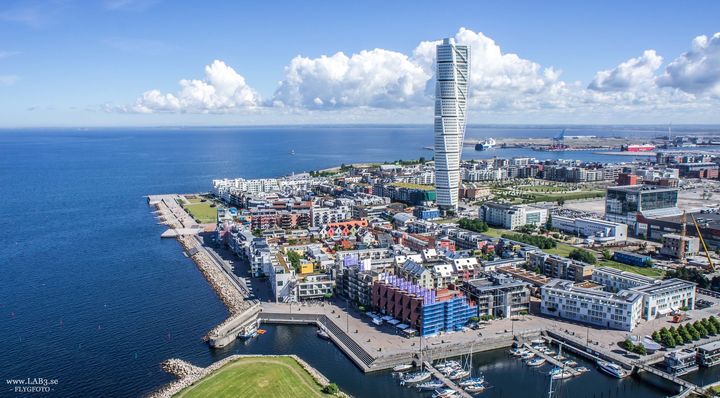Navigating the University of Copenhagen: FAQs About Admission, Programs, and Campus Life
Discover admissions, programs, campus life, and more at the University of Copenhagen. Get answers to all your FAQs and embark on your academic journey with confidence!

As one of the largest and most prestigious universities in Denmark, the University of Copenhagen attracts students from around the globe, each with their own set of questions and inquiries. Whether you're a prospective student navigating the admissions process, a current student seeking information on campus resources, or an international applicant exploring study opportunities abroad, we understand that embarking on your educational journey can be both exciting and overwhelming.
In this blog, we aim to address the most common questions and concerns that prospective students, current students, and other stakeholders may have about the University of Copenhagen. Whether you're curious about the admissions process, eager to explore the array of programs available, or simply seeking guidance on navigating campus life, we're here to provide you with the information and insights you need to make informed decisions and thrive during your time at the University of Copenhagen.
Looking for housing for students in Copenhagen? Check out our listings for shared accommodation on Hemavi!
What is the admission process at the University of Copenhagen for international students?
Before applying, international students should thoroughly research the programs offered at the University of Copenhagen to determine which ones align with their academic and career goals. Each program may have specific requirements for admission, including academic prerequisites, language proficiency tests (such as TOEFL or IELTS for non-native English speakers), and any additional documents (such as letters of recommendation or a statement of purpose) that need to be submitted.
International students should apply for admission through the university's online application portal. The application deadlines vary depending on the program and level of study, so it's essential to check the specific deadlines for each program of interest. Along with the application form, students will need to submit all required supporting documents, such as transcripts, diplomas, language test scores, and any other materials requested by the program.
After the review process is complete, applicants will be notified of the admission decision. If accepted, students will receive an official letter of admission from the university, outlining any conditions of acceptance and instructions for confirming their enrollment. International students who are accepted to study at the University of Copenhagen may need to apply for a student visa or residence permit, depending on their nationality. The university's international office or admissions department can provide guidance and support with the visa application process.
Upon receiving confirmation of acceptance, students must complete the enrollment process, which may involve paying tuition fees, registering for courses, and attending orientation sessions to familiarize themselves with the university's policies, procedures, and campus resources.
What are the academic programs offered for international students at the University of Copenhagen?
The University of Copenhagen offers a diverse range of academic programs for international students at the undergraduate, graduate, and doctoral levels. Here are some of the key program areas available:
- Bachelor's Programs: International students can pursue Bachelor's degree programs in various fields, including: Humanities (e.g., History, Philosophy, Cultural Studies), Social Sciences (e.g., Political Science, Economics, Sociology), Natural Sciences (e.g., Biology, Chemistry, Physics), Health Sciences (e.g., Medicine, Dentistry, Pharmacy) and Engineering (e.g., Biotechnology, Computer Science, Environmental Engineering).
- Master's Programs: The University of Copenhagen offers a wide range of Master's degree programs taught in English across different disciplines, including: Agriculture, Food and Environment, Business Administration and Economics, Environmental Science, Global Health, International Development Studies, Law, Linguistics, Public Administration, Renewable Energy and Urban Studies.
- Ph.D. Programs: International students interested in pursuing advanced research and academic careers can apply to Ph.D. programs offered by the University of Copenhagen. These programs span various fields of study, including natural sciences, social sciences, humanities, health sciences, and interdisciplinary studies.
- Summer Schools and Short Courses: Additionally, the university hosts summer schools and short courses designed for international students who wish to explore specific subjects or research areas intensively over a shorter period.
- Exchange Programs: The University of Copenhagen also participates in numerous exchange programs with partner universities worldwide, allowing international students to study abroad for a semester or academic year while earning credits towards their degrees.
What are the tuition fees for international students at University of Copenhagen?
Tuition fees for international students vary depending on the program and level of study. Generally, students from outside the European Union (EU), European Economic Area (EEA), and Switzerland are required to pay tuition fees. The exact tuition fees can differ between programs but typically range from approximately €8,000 to €15,000 per academic year for Bachelor's and Master's programs.
Tuition fees for Ph.D. programs at the University of Copenhagen may vary, and in some cases, there may be no tuition fees for Ph.D. students, particularly if they are employed as research assistants or have secured external funding for their studies.
The University of Copenhagen offers various scholarships and funding opportunities for international students to help offset tuition costs. These scholarships may be merit-based, need-based, or specific to particular programs or research areas. Prospective students are encouraged to explore the university's scholarship options and eligibility criteria on the official website. International students may also be eligible for external scholarships, grants, or financial aid from government agencies, private organizations, or international foundations in their home countries or through international scholarship programs.
What is campus life like for international students at University of Copenhagen?
The University of Copenhagen is home to a diverse community of students, faculty, and staff from all around the world. International students have the opportunity to interact with peers from different cultural backgrounds, fostering cross-cultural understanding and friendships.
The university boasts a wide range of student organizations, clubs, and societies catering to various interests, hobbies, and causes. International students can join clubs related to sports, arts, music, academic interests, social causes, and more, providing opportunities for socializing, networking, and personal development. Additionally, the university organizes numerous events, workshops, seminars, cultural festivals, and recreational activities throughout the academic year. These events offer international students the chance to engage with their peers, explore new interests, and immerse themselves in Danish and global culture.
The University of Copenhagen provides comprehensive support services for international students, including orientation programs, academic advising, counseling services, health care facilities, and career guidance. These resources aim to help students navigate academic challenges, adapt to campus life, and thrive personally and professionally during their time at the university. One form of support given by the university is assistance in finding suitable accommodation options, including student dormitories, shared apartments, and private rentals. Living in student housing provides an opportunity for international students to connect with peers and build friendships in a supportive environment.
What are the research opportunities for international students at the University of Copenhagen?
The University of Copenhagen is renowned for its strong emphasis on research and innovation across a broad spectrum of academic fields. International students have access to cutting-edge research facilities, state-of-the-art laboratories, and world-class faculty mentors who are experts in their respective fields.
International students at the University of Copenhagen have the opportunity to participate in research projects and collaborations with faculty members, research groups, and interdisciplinary teams. These projects cover diverse areas of study, including natural sciences, social sciences, humanities, health sciences, engineering, and more. The university hosts numerous research centers, institutes, and interdisciplinary research initiatives that provide international students with opportunities to engage in impactful research endeavors. These centers focus on addressing complex global challenges, advancing scientific knowledge, and driving innovation in various fields.
The University of Copenhagen offers funding opportunities, scholarships, and grants to support international students' research endeavors. These funding opportunities may include scholarships for Ph.D. students, research grants for specific projects, and funding for conference participation and research-related travel expenses. The University of Copenhagen also actively promotes international collaboration and partnerships with academic institutions, research organizations, and industry partners worldwide.
What are the exchange programs available for international students at the University of Copenhagen?
The University of Copenhagen offers outgoing and ingoing exchange programs, as well as international summer schools and research collaborations. Spanning different disciplines and educational tracks, each of these programs boasts the opportunity to engage with an international community, conduct research and collaborate academically with subject-matter experts on a global scale, and a comprehensive international experience.
You can learn more about each of the exchange programs offered at the University of Copenhagen through here.




Comments ()